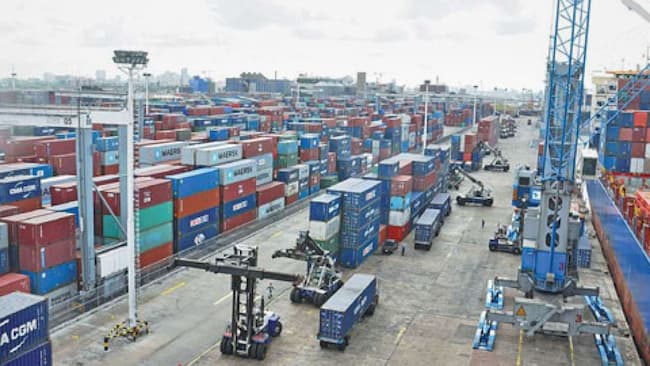Copyright bizwatchnigeria

The Federal Government has renewed its commitment to transform Nigeria’s port operations and make them among the top three most efficient in Africa by 2026. Vice President Kashim Shettima disclosed this during the second meeting of the Ports and Customs Efficiency Committee held at the Presidential Villa, Abuja. According to Shettima, the implementation of the National Single Window—a unified digital platform that will harmonise documentation and reduce human contact in cargo clearance—is expected to be completed by the first quarter of next year. “By the end of 2026, we aim to reduce average cargo clearance time in Nigeria to under seven days,” Shettima stated, describing the initiative as a “game changer” for port efficiency and trade transparency. Reducing Costs and Improving Trade Competitiveness Nigeria’s ports currently record average cargo dwell times of 18 to 21 days, compared to Ghana’s five to seven days and Benin Republic’s four days. This lag, Shettima said, has raised cargo clearance costs by over 30% relative to regional peers. “These inefficiencies are costing us investments, raising consumer prices, and eroding export competitiveness. We simply cannot continue down this path,” he said. The Vice President revealed that the Executive Order on Joint Physical Inspection, awaiting presidential approval, is designed to eliminate redundant inspections and enhance collaboration among port agencies. Inter-Agency Collaboration and Policy Alignment Shettima directed key regulatory bodies—including the Nigerian Ports Authority (NPA), Nigerian Customs Service (NCS), NAFDAC, and SON—to develop a roadmap for harmonising port operations and standardising weights and measures. He stressed that achieving efficiency depends on synergy among all stakeholders: “The era of siloed operations must end. Inter-agency rivalry should give way to collaboration.” The Director-General of the Presidential Enabling Business Environment Council (PEBEC), Zahrah Audu, noted that inefficient port operations have long hampered Nigeria’s Ease of Doing Business ranking. She called for sustained collaboration among port operators to make Nigeria a competitive and transparent trade hub. NPA Managing Director, Dr. Abubakar Dantsoho, also reaffirmed the agency’s commitment to efficiency through technology adoption, improved infrastructure, capacity building, and inter-agency coordination. He emphasized that these reforms will ensure Nigeria remains competitive within Africa’s trade ecosystem and beyond.



